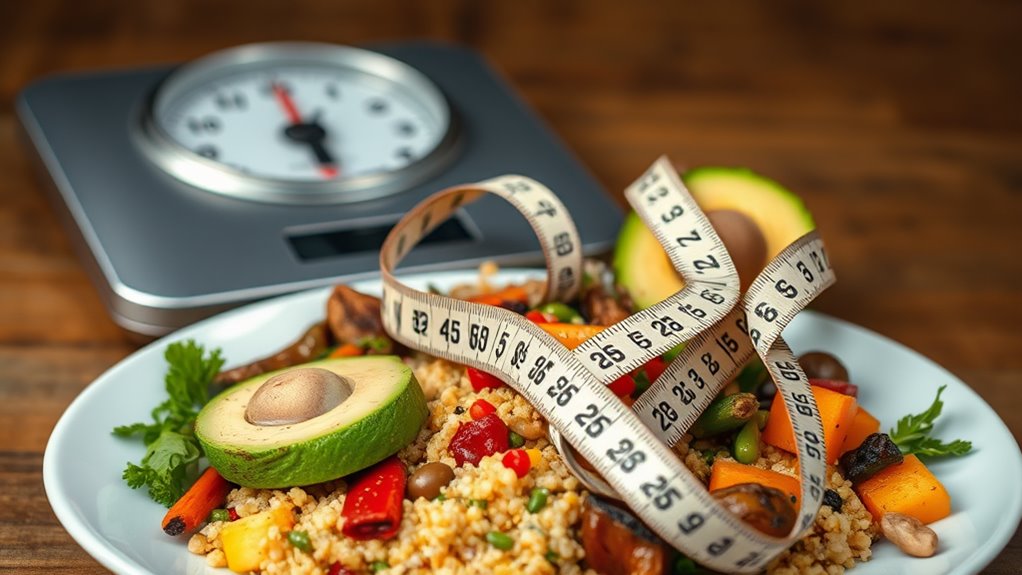Can You Really Lose 20 Pounds in a Month. Experts Weigh In!
So, you want to lose 20 pounds in a month? It sounds tempting, right? But before you jump into any crazy diet or extreme workout, let’s chat about what the experts really think. Sure, rapid weight loss can seem like a quick fix, but it often comes with some serious health risks. Let’s explore what’s safe, effective, and actually sustainable for your weight loss journey. Trust me, it’s worth knowing!
Understanding Rapid Weight Loss
When you think about losing weight quickly, it’s easy to get caught up in the excitement of rapid results, but understanding what that really means is key.
To lose 20 pounds in a month, you might be tempted by drastic diets or extreme workouts, but these can lead to burnout or health issues. Instead, consider a balanced approach: focus on nutritious foods, regular exercise, and staying hydrated.
It’s essential to set realistic goals and remember that slow and steady progress is often more sustainable. You’ll feel better in the long run, and your body will thank you.
Plus, embracing the journey can make the process more enjoyable, helping you build habits that last beyond just a month.
Expert Opinions on Losing 20 Pounds in a Month
While you might dream of shedding 20 pounds in just a month, experts often emphasize that such rapid weight loss can be tricky and isn’t always safe.
Many professionals suggest that losing 1 to 2 pounds a week is a healthier and more sustainable goal. They warn that extreme diets or excessive exercise could lead to burnout or serious health issues.
It’s crucial to listen to your body and avoid shortcuts that promise quick results. Instead of focusing solely on the scale, consider the bigger picture—like how you feel and your overall health.
Safe and Effective Weight Loss Methods
If you’re feeling overwhelmed by the idea of losing weight quickly, don’t worry—you’re not alone. Many people struggle with finding safe and effective methods.
First, focus on setting realistic goals; losing 1-2 pounds a week is a healthy target. Incorporate regular exercise into your routine, like brisk walking or fun activities you enjoy. Remember, consistency is key!
You might also consider tracking your progress; it can motivate you to stay on track. Stay hydrated, too—sometimes, thirst disguises itself as hunger.
When cravings hit, opt for healthier snacks instead of reaching for junk food. Lastly, don’t forget to be kind to yourself. Weight loss takes time, and it’s okay to celebrate small victories along the way.
You’ve got this!
The Role of Diet in Weight Loss
Diet plays a crucial role in weight loss, and understanding this can make your journey a lot easier.
You’re probably aware that what you eat impacts your weight, but it’s not just about cutting calories. It’s about choosing the right foods! Incorporating plenty of fruits, vegetables, lean proteins, and whole grains can help you feel full longer, making it easier to resist those tempting snacks.
Also, don’t forget to hydrate—drinking enough water can curb your appetite and keep you energized.
Sure, it can be frustrating to navigate all the conflicting diet advice out there, but remember, balance is key!
Exercise Strategies for Maximum Results
When you commit to losing weight, exercise can be your best friend, especially if you want to see maximum results. Incorporating a mix of cardio and strength training into your routine is key.
Think about jogging, biking, or even dancing to get your heart pumping. Just 150 minutes of moderate cardio each week can work wonders!
Don’t forget strength training, too; it builds muscle, which boosts your metabolism. Aim for at least two sessions a week.
And hey, if you find it tough to stay motivated, grab a friend or join a class. You’ll laugh, sweat, and keep each other accountable.
Potential Health Risks of Rapid Weight Loss
While getting active and shedding pounds can feel empowering, it’s important to be aware of the potential health risks that come with rapid weight loss.
Losing weight too quickly can lead to nutritional deficiencies, as your body mightn’t get the essential vitamins and minerals it needs. You might also experience fatigue, dizziness, or even mood swings.
Plus, rapid weight loss can slow down your metabolism, making it harder to keep the weight off in the long run. There’s also the risk of muscle loss, which isn’t what you want when you’re trying to get healthy.





